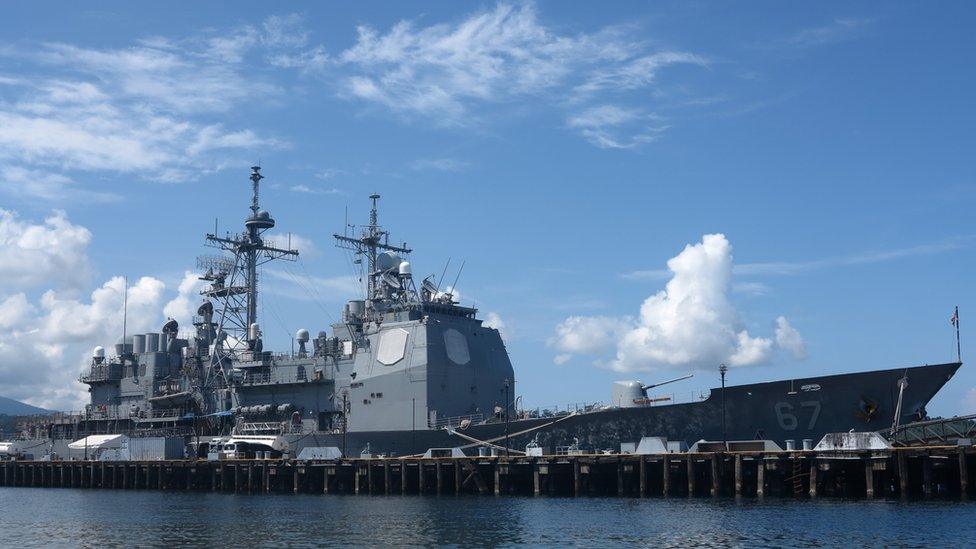Trump attacks China in Twitter outburst
- Published
- comments
Carrie Gracie: How might China respond?
US President-elect Donald Trump has posted a series of tweets criticising China for its exchange rate policy and its operations in the South China Sea.
"Did China ask us if it was OK to devalue their currency" and "build a massive military complex?" he asked. "I don't think so!"
China said both sides should "stick to basic principles" of the relationship.
Last week Mr Trump risked a diplomatic rift with China by speaking directly with Taiwan's president.
The highly unusual move saw China lodge a complaint with the US.
Where do Donald Trump supporters get their news from?
In response to the latest tweets, without directly referring to them, the Chinese foreign ministry said the US and China have long had "highly mutually beneficial" relations.
A spokesperson declined to comment on "he and his team's method and what's the thinking behind it", referring to Mr Trump.
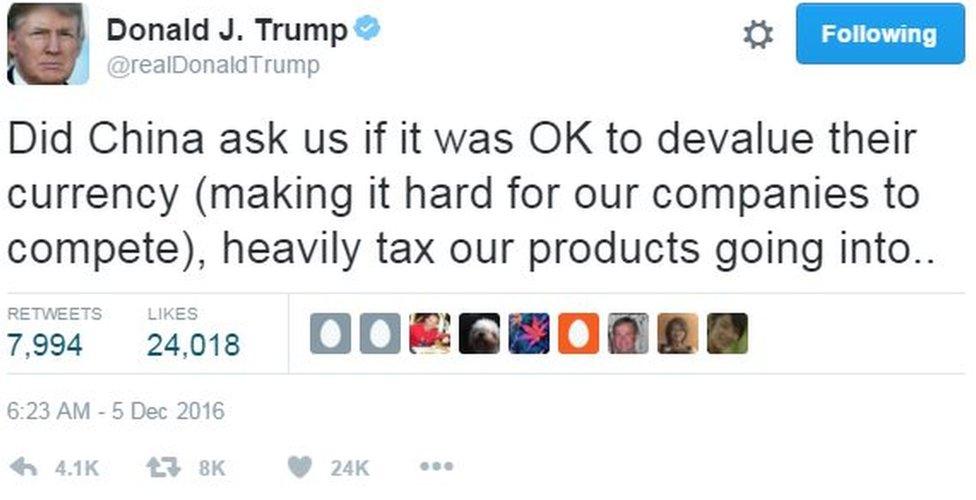
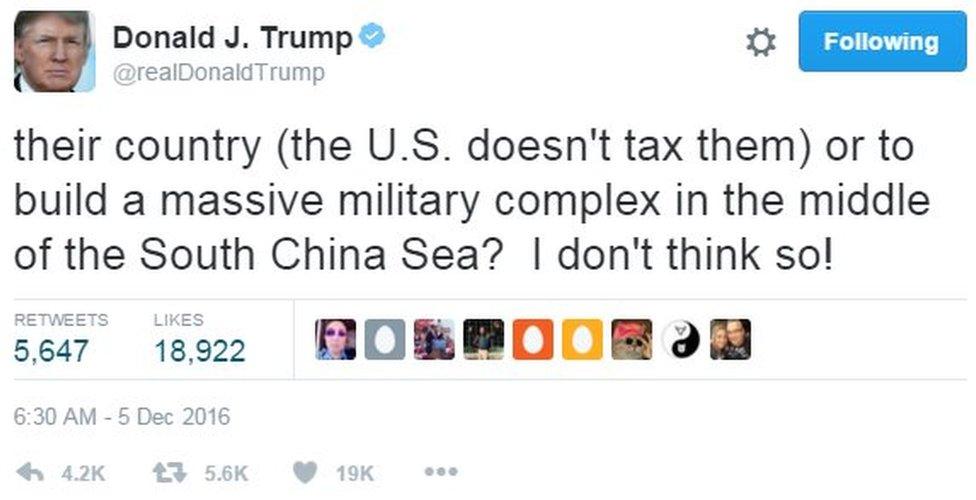
The US has previously criticised China's yuan devaluation, saying it unfairly favours Chinese exporters.
It has also told Beijing to stop reclaiming land around islands and reefs which are claimed by multiple countries in the South China Sea, and has sent US Navy ships to the area. Both sides have accused each other of "militarising" the region.
The US currently imposes tariffs on some Chinese imports, such as steel and tyres. Mr Trump has previously threatened to impose a 45% tariff on Chinese goods.

Can Donald Trump continue his Twitter diplomacy? - Jonathan Marcus, BBC Diplomatic Correspondent
Donald Trump's Twitter outburst along with his telephone call with the Taiwanese president has sent an emphatic signal to Beijing that the new US administration's Asia policy may not be business as usual.
We don't know if the tweets will continue when Mr Trump enters the White House. But if they do, they threaten not just to ruffle feathers abroad but also to sow uncertainty within his own administration.
The president may be the ultimate arbiter but once in office he cannot risk publicly second-guessing his key cabinet appointments. But there's another problem too. The tweet, as a medium, is by definition short and off-the-cuff.
Policymaking, by contrast, requires coolness, deliberation and a weighing up of options. The danger is that Twitter diplomacy, for all its honesty, could exacerbate crisis instead of resolving it.

Mr Trump's phone call with Taiwan's President Tsai Ing-wen was thought to be the first time a US leader or leader-in waiting has spoken to a Taiwanese leader since 1979, the year formal ties were severed.
The White House has said the phone call did not signal a shift in its decades-long "One China" policy stance, which does not recognise Taiwan as an independent sovereign state but also does not recognise Beijing's claim over Taiwan.
Vice President-elect Mike Pence has tried to downplay the call, saying it was a "tempest in a teapot" and "a moment of courtesy".
Beijing lodged a "solemn representation" with Washington, where it urged the US to "cautiously and properly handle" the issue of Taiwan, according to Chinese state media.
Beijing sees Taiwan as a province and aims to deny it any of the trappings of an independent state. It has threatened to use force if Taiwan formally declares independence.
- Published3 December 2016
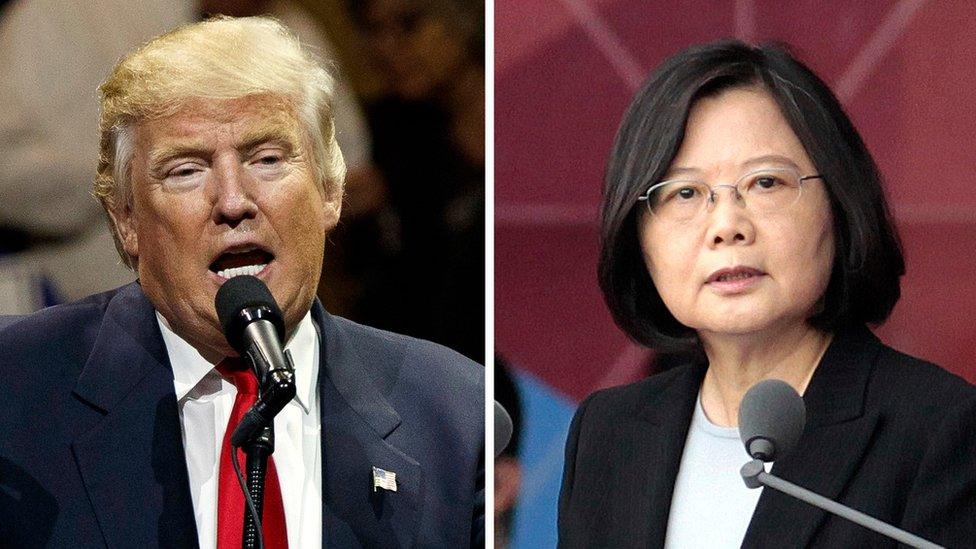
- Published3 December 2016
- Published15 January 2024
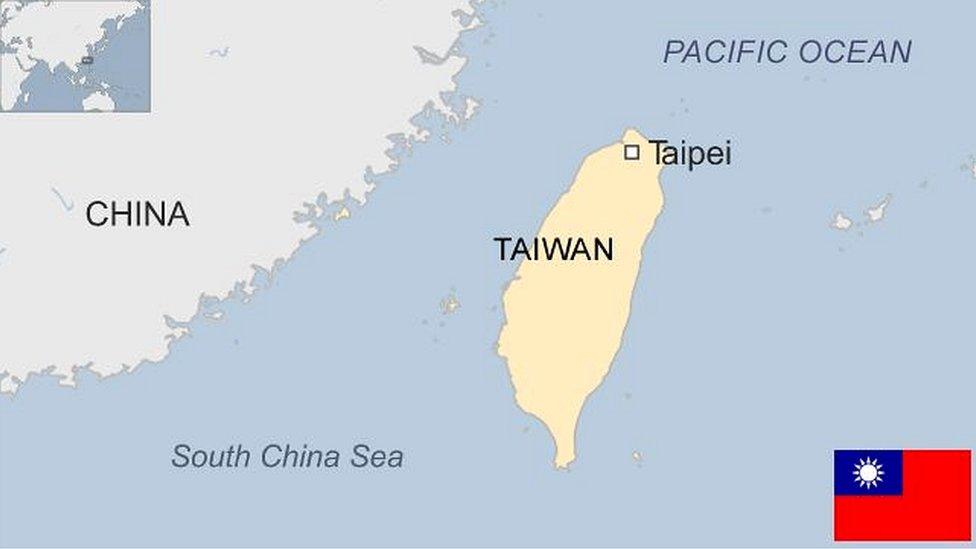
- Published14 October 2024
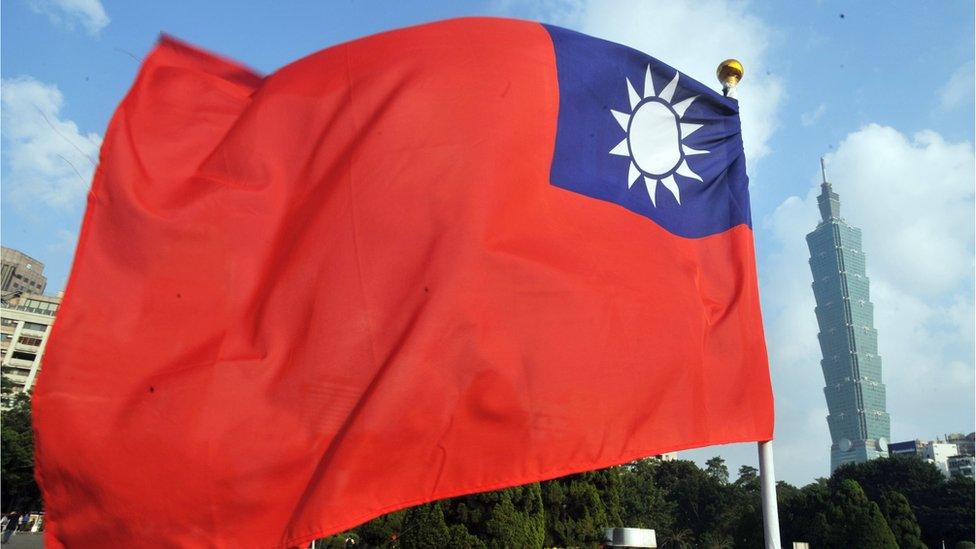
- Published7 July 2023
